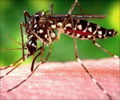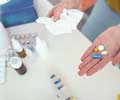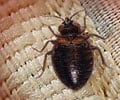Scientists at University of Arizona have found that there are some caterpillars that munch on drug-laced leaves to get rid of crippling parasites.
Lead author Elizabeth Bernays says that this finding is the first clear demonstration of self-medication among insects.She points out that parasitic flies lay their eggs inside woolly bears in the spring, and when the fly larvae hatch, they feed on the innards of their hosts before exploding out of their abdomens.
However, she adds, when infected caterpillars eat leaves from semecio and other plants, the animals get bellies full of drugs called alkaloids.
Alkaloids familiar to humans include caffeine, morphine, and cocaine.
The researchers concede that they cannot say whether the alkaloids attack the parasites directly, or whether the drug somehow gives the woolly bears' immune systems a boost.
They, however, insist that the alkaloid-laden leaves do cure the insects.
Advertisement
Although healthy woolly bears were also found to eat alkaloids, the amount was very small.
Advertisement
The research also revealed that parasite-free woolly bears, which binged on alkaloids, were more likely to die as compared to those that took the drug in moderation.
"It's a balancing act," National Geographic quoted Bernays as saying.
The researcher says that the new finding contradicts the suggestion that self-medication is restricted to relatively intelligent creatures that are capable of learning, such as primates.
A research article describing this study has been published in the journal PLoS One.
Source-ANI
ARU










